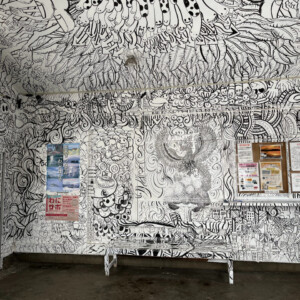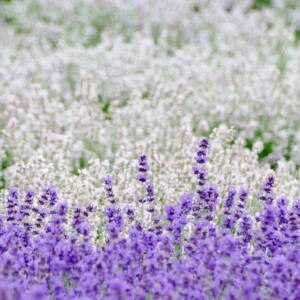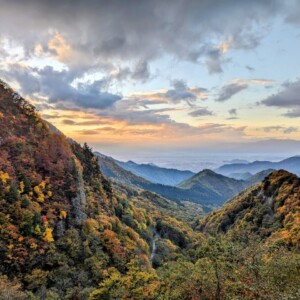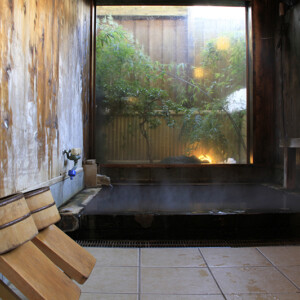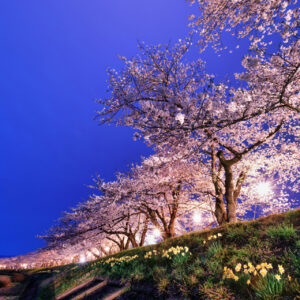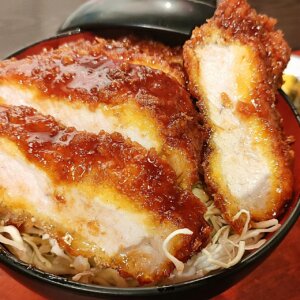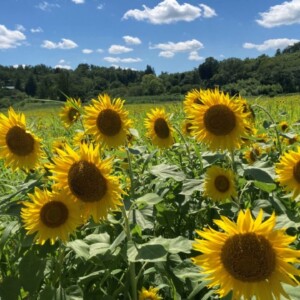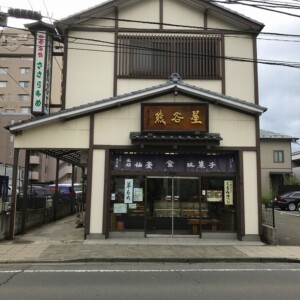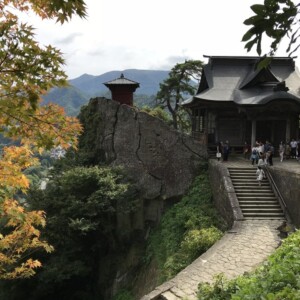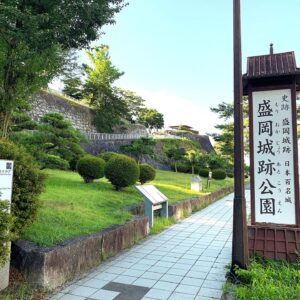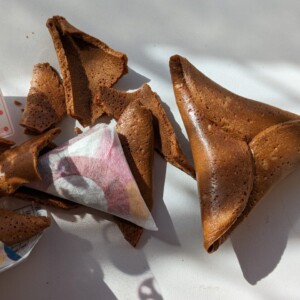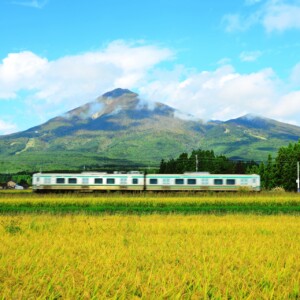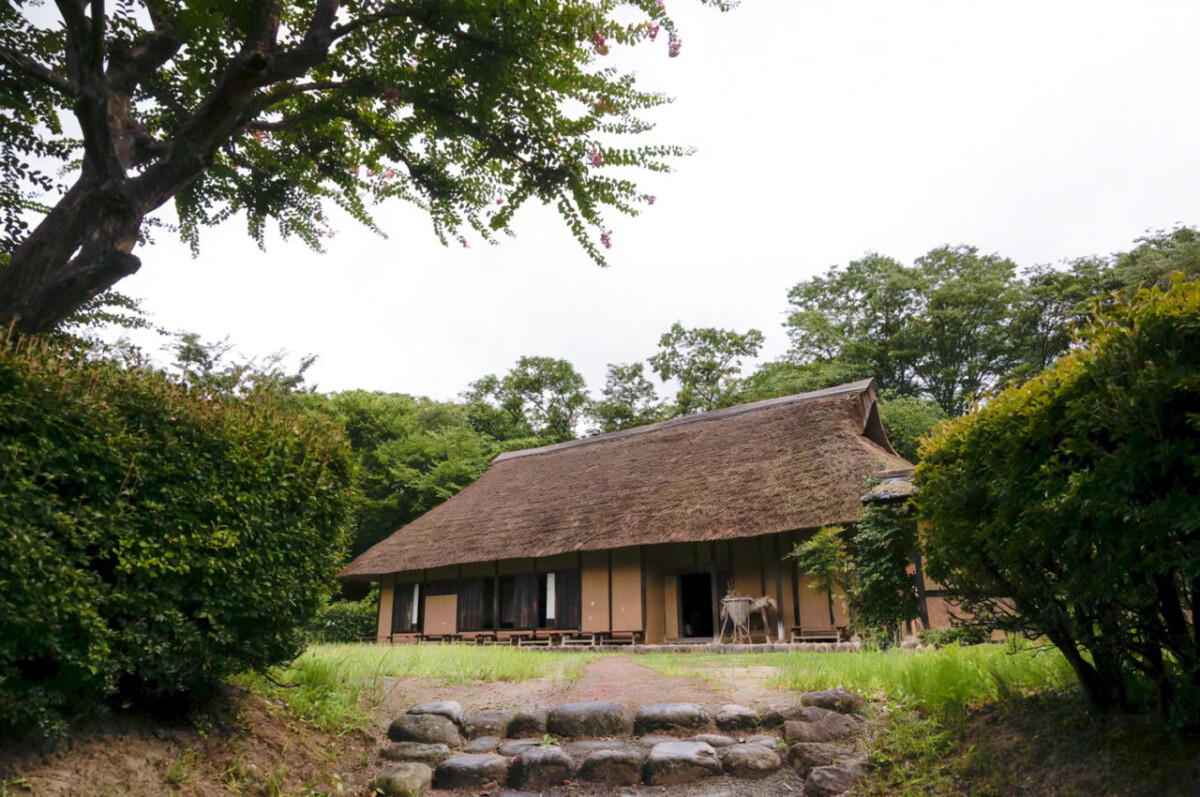
[Fukushima City, Fukushima Prefecture] Fukushima Municipal House Garden, a cultural asset of Fukushima Prefecture that should be preserved for future generations
table of contents
- 1 Thatched roof houses collected from various parts of Fukushima Prefecture
- 2 Valuable thatched-roof farmhouses: "Former Watanabe Family," "Former Nara Family," "Former Sugano Family," and "Former Abe Family"
- 3 The Former Baba Family House: A Curved House Where People Lived with Horses
- 4 The Former Ono Family Silkworm Farm, where silkworms were raised on the upper floors
- 5 The Hiroseza theater is a nationally designated important cultural property
- 6 Annual events and traditional crafts that have been passed down through the generations
- 7 Valuable buildings and tools such as inns and storehouses are also on display
- 8 summary
The Fukushima Civic Home Garden is a facility that brings together, preserves, and exhibits important ethnic heritage that we want to pass on to future generations, such as old wooden buildings with thatched roofs and playhouses that were destined to disappear
You can also enjoy seasonal events traditional to Fukushima Prefecture, as well as experiences such as sericulture, rice planting, rice harvesting, and straw crafts
Thatched roof houses collected from various parts of Fukushima Prefecture
The Fukushima Municipal House Garden consists of six thatched-roof farmhouses built between the Edo period and the early Meiji period
The five buildings are one-story, including one "magariya" (curved house). The remaining one is two-story, and each has an attic
Valuable thatched-roof farmhouses: "Former Watanabe Family," "Former Nara Family," "Former Sugano Family," and "Former Abe Family"
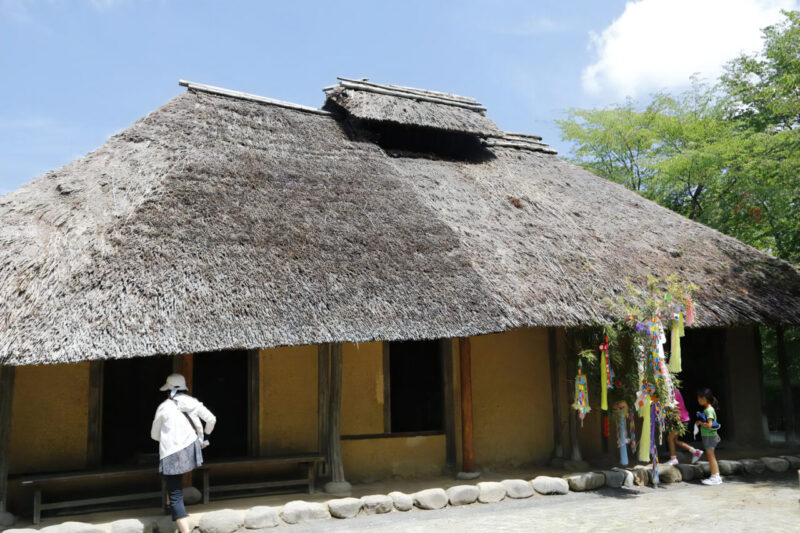
The "Former Watanabe Family," "Former Nara Family," "Former Sugano Family," and "Former Abe Family" are all single-story, straight houses (naoie/jikaya). The "Former Abe Family" was a typical farmhouse, while the others were large farmhouses with many rooms
All of the buildings were constructed during the Edo period
The former Nara family, the former Sugano family, and the former Abe family are designated as important cultural properties by Fukushima Prefecture, and the former Watanabe family is designated as a tangible cultural property by Fukushima City
The Former Baba Family House: A Curved House Where People Lived with Horses
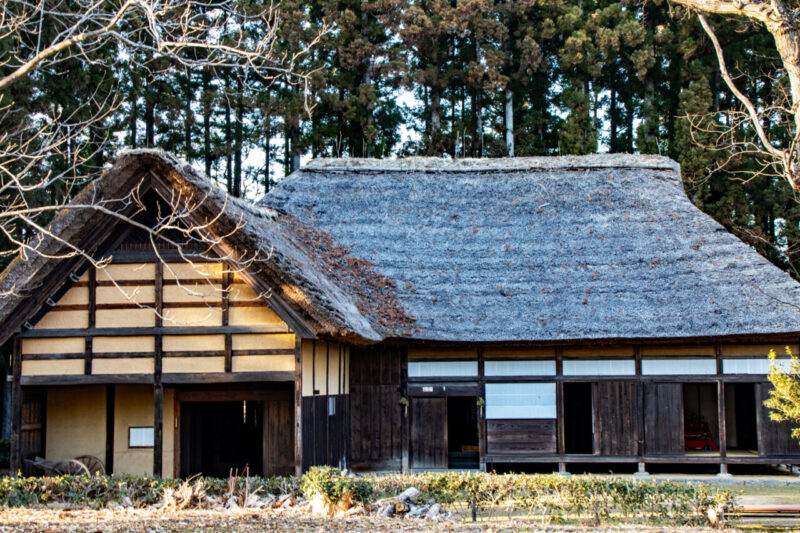
The "Former Baba House" is a curved-roof house built in the Edo period
Magariya houses were often built in areas north of the Kanto region, especially in areas with heavy snowfall such as Fukushima, Niigata, and Yamagata prefectures. Magariya houses, which have a main house and stable (a shed for raising horses) connected in an L shape, were created as a construction method to allow people to live together with horses, which were important livestock used for farming and transportation
By making it a curved shop
①You can see the horses up close and take care of them
②Horses can also stay in heated rooms
3. Caregivers don't have to go out in the snow
4. If the stables are located far away, it will not be noticed if they are destroyed by wind or snow
There were many benefits to using horses for farming and other purposes, but there are still over 100 curved houses remaining in the Aizu region
The Former Ono Family Silkworm Farm, where silkworms were raised on the upper floors
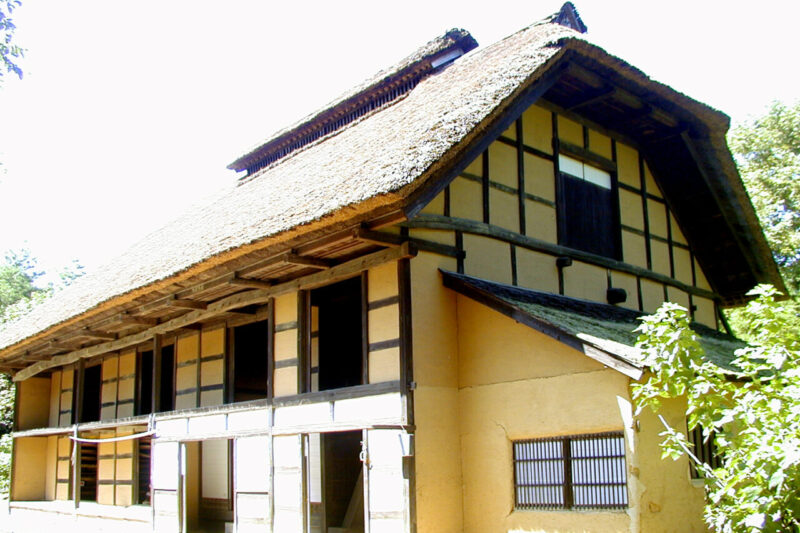
The "Old Ono House" is a two-story silkworm farm built in the early Meiji period. The architectural style is called a scaffolding mezzanine, and what appears to be the second floor is officially the mezzanine
Sericulture is the job of raising silkworms (larvae of the silkworm moth) and making cocoons (pupa of the silkworm moth) to produce silk thread, and Fukushima Prefecture was one of Japan's leading sericulture areas
Silkworms are sensitive to fluctuations in temperature and humidity, so they had to be raised on the second floor (mezzanine) or in the attic, where the heat from the hearth was constantly circulating
The skylight in the attic seen in the "Old Ono House" is apparently a construction unique to Fukushima Prefecture
The Hiroseza theater is a nationally designated important cultural property
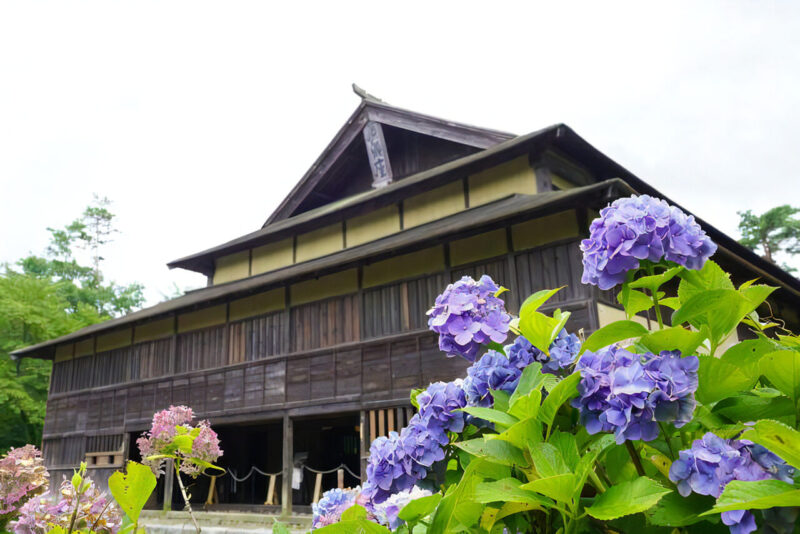
Hiroseza is a playhouse built around 1887 (Meiji 20) in the former Yanagawamachi (Date City, Fukushima Prefecture). It was used as a public entertainment venue and movie theater until 1986 (Showa 61), when it was damaged by flooding of the adjacent river
There was some discussion about demolishing the house, but it was purchased by Fukushima City and relocated to the Fukushima Municipal House Garden
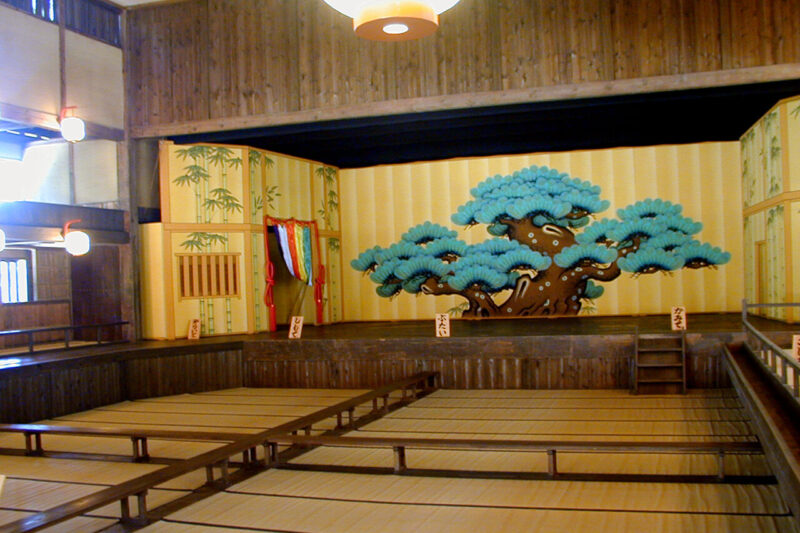
The Hiroseza is a rare playhouse that has almost all the necessary facilities, including a revolving stage, naraku (pit), hanamichi (runway), and sajiki (box seats), and you can view the stage and audience seats
The Hiroseza Theatre is a theater of great cultural value and has been designated an Important Cultural Property of Japan
Annual events and traditional crafts that have been passed down through the generations
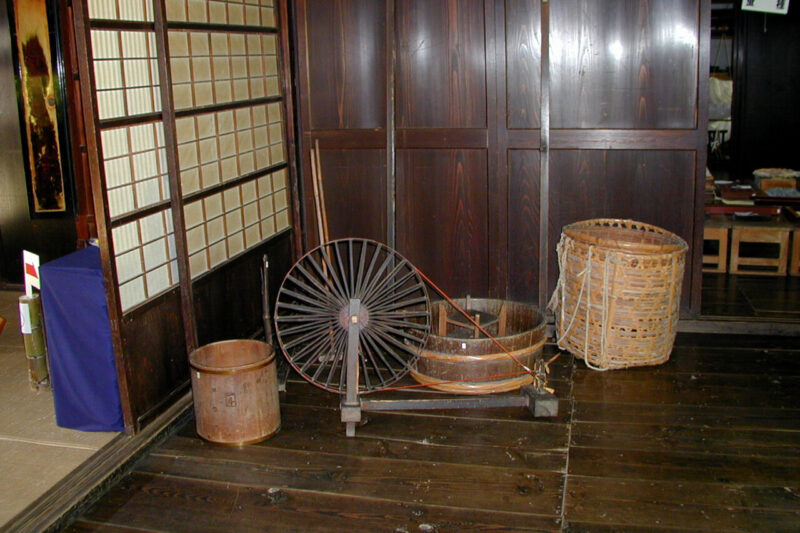
At Fukushima Minkaen, you can experience seasonal activities such as exhibits of annual events handed down in Fukushima Prefecture, making daily necessities, farming, and sericulture
For example, agricultural work involves "rice field preparation" in early May, "rice planting" in mid-May, and "rice harvesting" in autumn
During the summer vacation, you can also spend valuable time experiencing "old-fashioned farm life," an experience you would not get if you lived in the city
Some events, such as "Rice Planting" and "Traditional Farm Life," require advance registration
You can freely observe events such as "New Year's Day," "Little New Year's Day," "Setsubun," "Peach Festival," "Tango Festival," and "Obon."
Valuable buildings and tools such as inns and storehouses are also on display
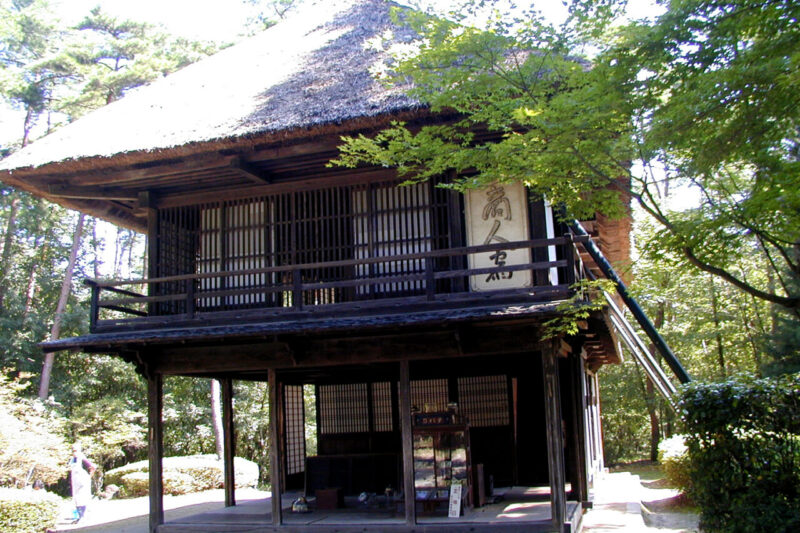
The Fukushima Civic House Garden also displays other unusual buildings, huts, and tools, including a former inn (Kyuukake Ikeshukuten, a Fukushima City designated tangible cultural property), a traditional Japanese inn and restaurant called Motokyakujiken (a Fukushima City designated tangible cultural property), a wooden storehouse (itakura) that was used as a private home, a bridge toll hut (a hut where people paid bridge tolls), old agricultural equipment, and a weaving machine
summary
The Fukushima Citizens' Home Garden is a very valuable experience, providing a place to learn about Fukushima Prefecture's past and what should be passed on to future generations
Please come and visit with your family and use this as an opportunity for parents to pass on important things to their children
Fukushima Municipal House Garden <Information>
- Name: Fukushima Citizen Garden
- Address: Kaminokura Oishi-mae, Fukushima City, Fukushima Prefecture, 960-2155 (inside Azuma General Sports Park)
- Phone number: 024-593-5249
- Official URL: https://minka-en.com/



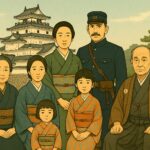
![[Fukushima] Take a trip back in time. On a nice day, head to Fukushima Minkaen! resize3](https://jp.neft.asia/wp-content/uploads/2017/05/resize3-150x150.png)
![[Fukushima] Along with sightseeing at Tsuruga Castle, the Aizu Ramen Show is finally here! 1e2675187f4dad35bc59e28f4a767e23_m](https://jp.neft.asia/wp-content/uploads/2017/10/1e2675187f4dad35bc59e28f4a767e23_m-150x150.png)
![[Tsuruoka City, Yamagata Prefecture] The sea is right in front of the hot spring? Enjoy the best summer ever by swimming and soaking in the hot spring at Yunohama Onsen! 4012080_m](https://jp.neft.asia/wp-content/uploads/2022/08/4012080_m-150x150.jpg)
![[Aizuwakamatsu City, Fukushima Prefecture] "Aizu Thirty-Three Kannon Temples" Tour around the Kitaaizu Area, Centered on Aizuwakamatsu 25949683_m](https://jp.neft.asia/wp-content/uploads/2023/02/25949683_m-150x150.jpg)
![[Fukushima City, Fukushima Prefecture] A summer tradition in Fukushima City, Fukushima Prefecture! The wishes that are put into Japan's largest straw sandals IMG_0073_R](https://jp.neft.asia/wp-content/uploads/2022/07/IMG_0073_R-e1658721103457-150x150.jpg)
![[Fukushima City, Fukushima Prefecture] The festival has been renewed! How to enjoy the new festival to the fullest IMG_0317_R](https://jp.neft.asia/wp-content/uploads/2022/07/IMG_0317_R-150x150.jpg)
![[Fukushima Prefecture] 5 Famous Waters of Fukushima Prefecture! Delicious waters that support the reconstruction of "Beautiful Fukushima"! Ukonshimizu](https://jp.neft.asia/wp-content/uploads/2023/02/8606bd2d94c5420d999758fe4de7a638-150x150.jpg)
